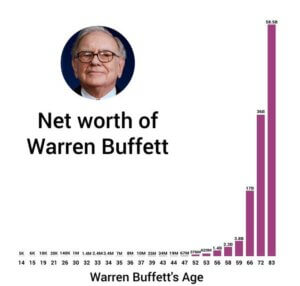For decades, the 60/40 portfolio—a mix of 60% stocks and 40% bonds—has been a cornerstone of diversified investing. Its simplicity and balance between growth and stability have made it a go-to strategy for many investors. The fundamental idea behind this portfolio is that stocks provide long-term growth, while bonds offer protection during downturns, as they tend to rise in value when equities fall. Constructing an uncorrelated asset portfolio required a selection which could vary around the 60/40 rule was considered an All-Weather Portfolio.
The dynamics that once made the 60/40 portfolio a reliable strategy seems to have shifted, particularly in the wake of high inflation and changing central bank policies. As Inflation becomes a real concern for Central Banks around the world, it’s crucial to reassess the viability of the 60/40 portfolio and consider what aligns with the current situation.
The 2022 Un-correlation
The challenges to the 60/40 portfolio were starkly evident in 2022. For the first time in years, both stocks and bonds delivered significant negative returns. This unusual scenario—where both asset classes fell in tandem—undermined the very premise of diversification that the 60/40 portfolio is built on. Investors who relied on bonds to cushion the blow of declining equities found themselves exposed to greater risk than anticipated.
The root of this issue lies in the positive correlation between stocks and bonds that emerged during the year. Historically, these assets have moved inversely to each other, with bonds rising when stocks fell. But in 2022, the simultaneous decline of both asset classes highlighted the limitations of the traditional 60/40 approach in the face of rising inflation and aggressive interest rate hikes by central banks.
The Inflation Factor: A Game Changer for Allocation
As we look forward, the future of the 60/40 portfolio largely hinges on inflation and its impact on monetary policy. In the past, when economic slowdowns threatened growth, central banks typically responded by cutting interest rates, which helped bonds rally and offset stock losses. This dynamic provided a natural hedge within the portfolio, ensuring that bonds could serve as a reliable shock absorber.
However, with inflation still running well above the Federal Reserve’s 2% target, this relationship may no longer hold. Central banks, particularly the Fed, are now prioritizing inflation control over economic stimulus. This means that even in the face of a growth slowdown, the Fed may be reluctant to slash interest rates aggressively, limiting the potential upside for bonds. In this new environment, bonds may not provide the same degree of protection they once did, challenging the effectiveness of the 60/40 portfolio.
Adjusting Your Allocation
Given the shifting economic landscape, investors need to reconsider their allocation strategies. While the 60/40 portfolio may still serve as a foundational starting point, adjustments may be necessary to better navigate the current environment.
1. Diversify Beyond Bonds: With bonds potentially offering less downside protection, investors might consider diversifying into other asset classes. This could include allocations to alternative investments which has higher eligibility requirements to qualify as an investor. Please work with your Financial Advisor or speak to us about alternative investments available.
2. Consider Duration and Quality in Fixed Income: If bonds remain part of your portfolio, it’s important to be selective. Longer-duration bonds are more sensitive to interest rate changes and may be riskier in a rising rate environment. Instead, focusing on shorter-duration bonds or those with higher credit quality could provide more stability. At Finomenon Investments, we consider the cash flows through our analysis and structure bond holdings using that as an input to duration.
3. Increase Exposure to Inflation-Resistant Assets: Assets that tend to perform well in inflationary environments, such as Treasury Inflation-Protected Securities (TIPS), commodities, or even certain equities like energy or other utility stocks, can be valuable additions to a portfolio. Equities in general is believed to be the best assets to stay ahead on inflation.
4. Reevaluate Risk Tolerance and Time Horizon: In an environment of higher uncertainty and potentially lower returns from bonds, investors should reassess their risk tolerance and investment time horizon. A more aggressive stance on equities might be appropriate for those with a longer time horizon, while a more conservative approach could involve greater cash holdings or defensive sectors.
A Flexible and Dynamic in Allocation
The 60/40 portfolio has long been celebrated for its simplicity and balance, but the recent inflation worries, and uncertain monetary policies requires a more dynamic approach to asset allocation. As inflation reshapes the investment landscape and alters the traditional stock-bond relationship, investors must be proactive in adjusting their strategies. We beleive that we have been here before, several times in last 100 years and that a 60/40 portfolio may still offer a solid foundation.
Personal Finance is never a one-size-fits-all – by diversifying beyond bonds, considering inflation-resistant assets, and thinking long term, we can become better investors. You can read our firm’s Investment Policy Statement to learn more about how we think about allocation.
Disclaimer: Nothing here should be considered an investment advice. All investment carry risks, including possible loss of principal and fluctuation in value. Finomenon Investments LLC cannot guarantee future financial results.
Image Credit: Images used are not created by Finomenon Investments, please share the source and author of the illustrator if you know to help give them credit.






